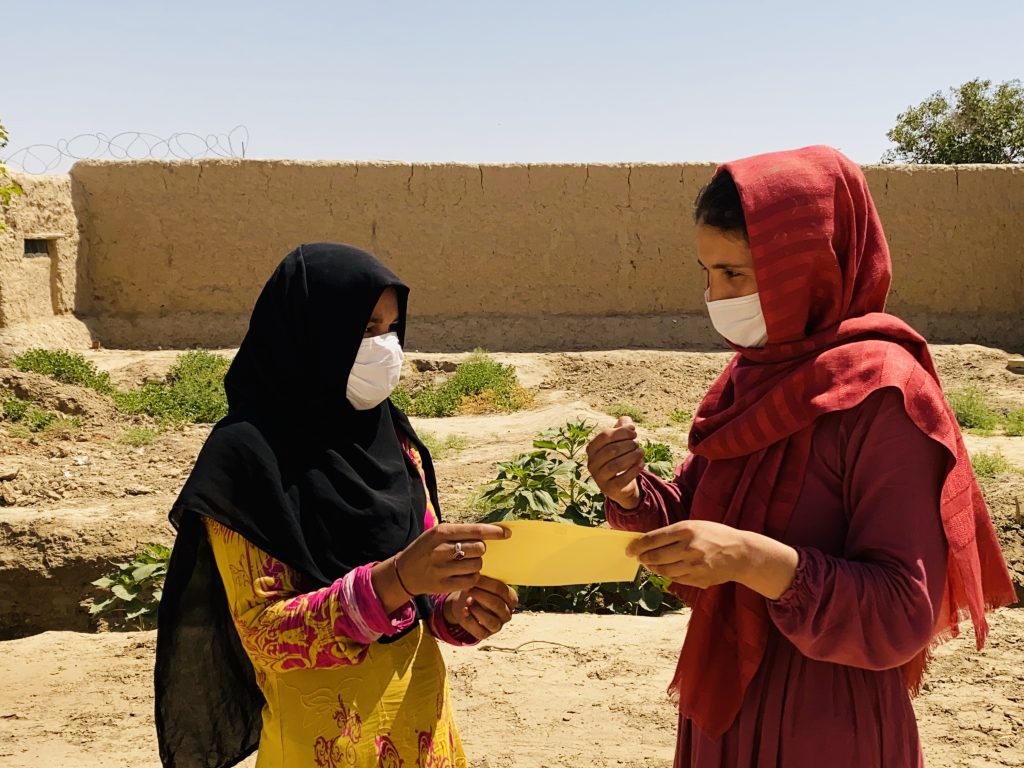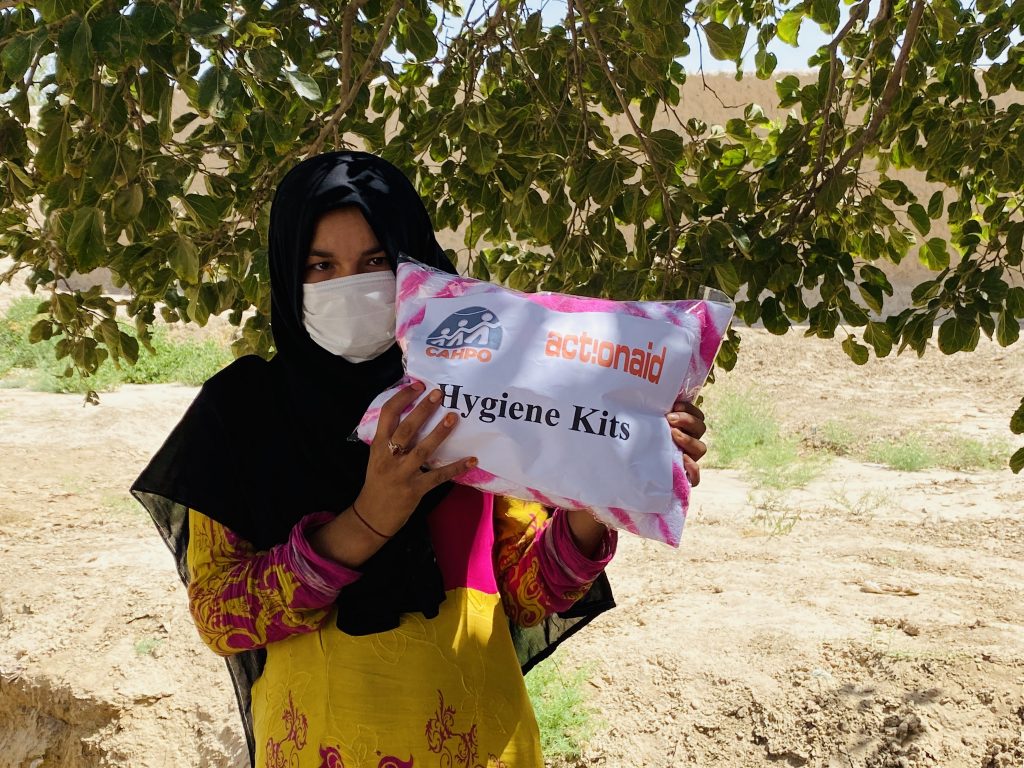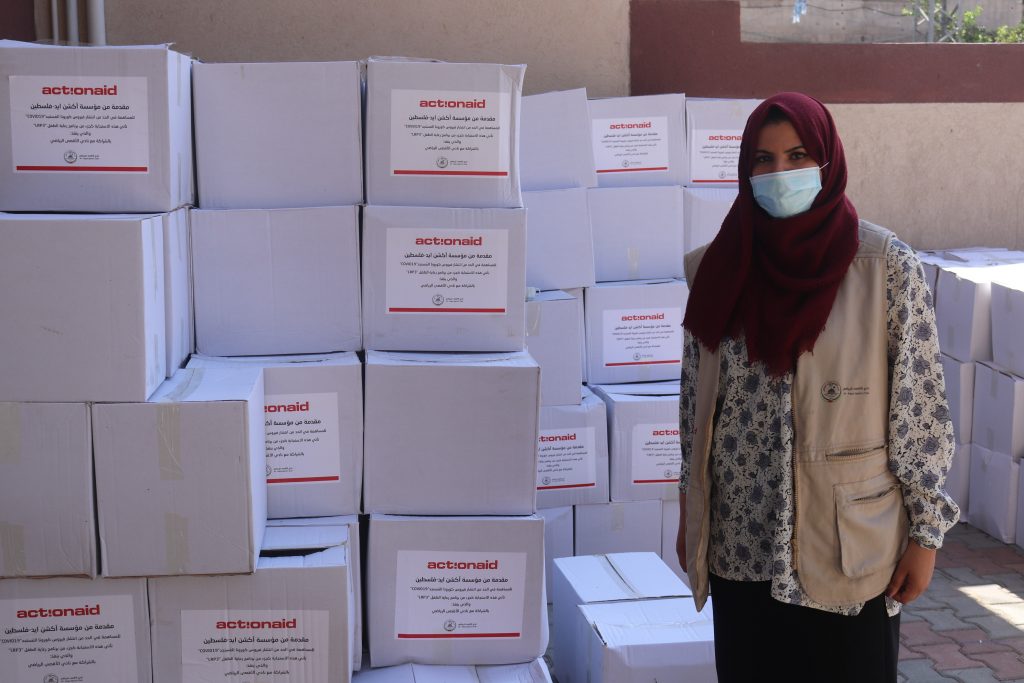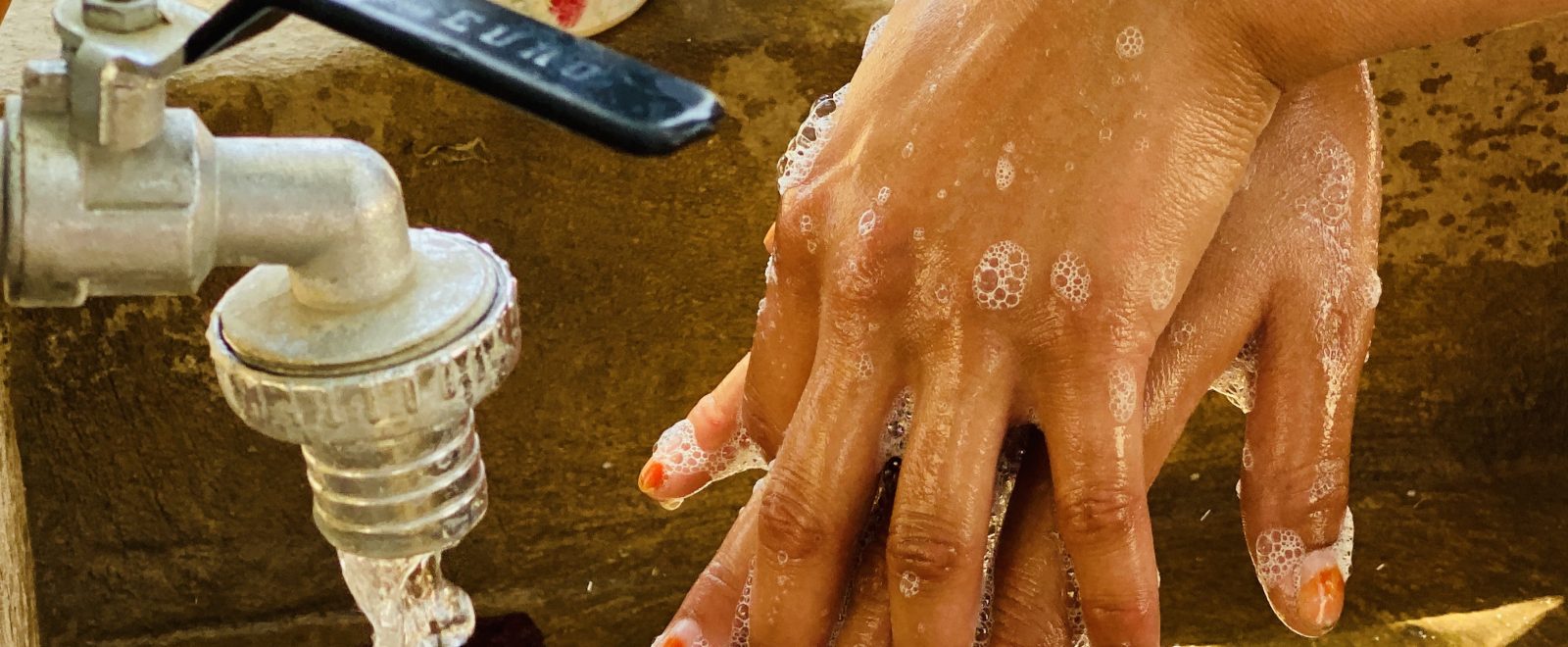As the Covid-19 crisis continues to evolve, our local women-led teams are reaching over 25 million people across 40 countries. Like all emergencies and humanitarian crises, the pandemic is affecting women and the most marginalized (including homeless populations, informal workers, migrant laborers, and survivors of violence) first and hardest.
While it may seem like the pandemic is starting to come to an end in the United States, other parts of the world won’t see an end to its impacts for many years to come. Already we know that some countries could be waiting until 2024 for widespread vaccination. That’s why our colleagues and partners are doubling down on sharing essential public health information with these vulnerable communities and supporting essential services such as emergency shelters for women at risk of domestic violence.
In Jordan, Lebanon, and Palestine, ActionAid is integrating our Covid-19 response into existing programs that support women and girls. We are raising awareness on COVID-19, facilitating access to urgent services, distributing food kits, providing psychosocial and financial support, and building the capacity of youth groups through online awareness raising and response training.
Here are a few stories from the frontlines:
Afghanistan

Ruqia is teaching Azada about how to protect herself from coronavirus. Because her village is so remote, Azada doesn’t receive a lot of information about the virus and just how dangerous it can be.
Our local staff in Afghanistan is raising awareness about the virus in Khwaja Du Koh district. They are teaching communities about the importance of hand washing, face masks and physical distancing and providing hygiene kits to families in rural communities.

Azada shares:
“I did not have any information about coronavirus before. Not only me, but my family members and the rest of women and children in my community were not aware of this virus. We had concern about it, because it was spreading in our district day by day and the number of the people affected by this virus increased.
But we live in remote areas and do not have access to electricity, TV, radio, and social media, so we di not know how to prevent the spread. Fortunately, ActionAid and its local partner gave us pamphlets and health information. Now, I know to wash my hands regularly, use a mask, keep social distance, and avoid going to busy places. My family also received a hygiene kit which helps us maintain personal hygiene. Our economy is not good so we cannot purchase these hygiene materials by own. Thanks to ActionAid for supporting us in this difficult time.”
Palestine

Layaly shares:
“I participated in a training conducted by ActionAid in Al Aqsa sport club targeting. We learned during the training how to deal with COVID-19 and the importance of taking safety measures, wearing masks, regular hand-washing and social distancing. After the training, we took it upon ourselves to transfer our knowledge through word or mouth and social media to our relatives, families, schools, and surrounding community.
Before, people were not committed to wearing masks and washing their hands regularly. They do not also have enough knowledge about the virus and how it can spread easily among people. Now, families have enough knowledge and awareness about COVID-19 – they truly realize the importance of wearing mask in public places.
The pandemic does have positive sides. In the trainings, I learned more than safety procedures, I was inspired by the training to better use all the extra time I have now. I started exercising more, reading more, and I became keen to spread more knowledge about the crisis, as well as positive energy among people, so that we overcome this crisis together.”
